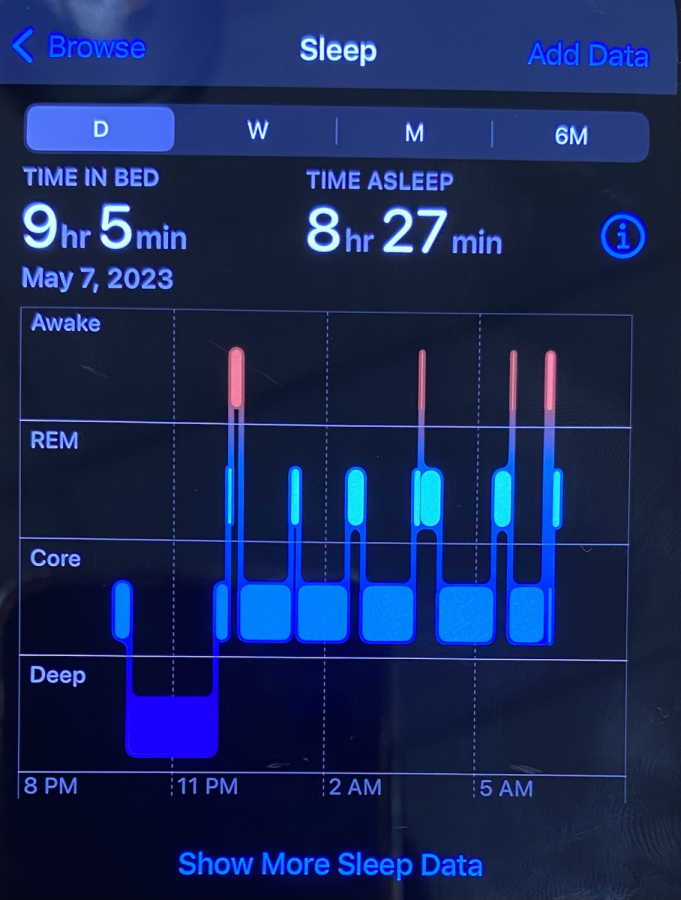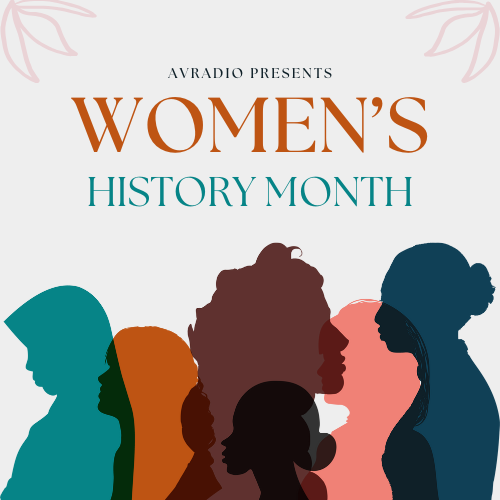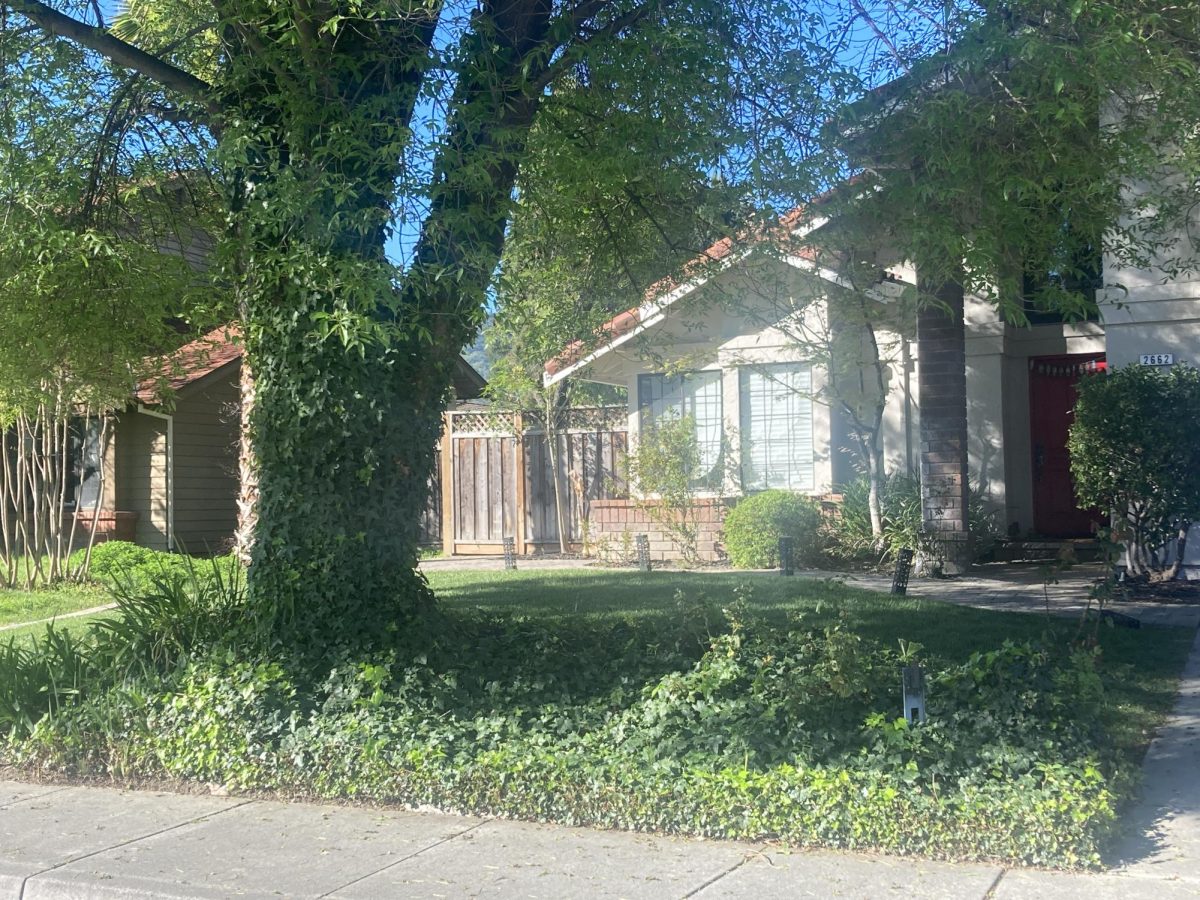Apple watch tracks sleep patterns
The apple watch can track sleep patterns and the duration of certain sleep cycles. Once tracked, it syncs to the iphone on the health app.
May 16, 2023
The Apple Watch was made in 2015 to serve as an addition to the iPhone. Along with all of the services and accessibility options available, the watch also offers an app through which people can track their sleeping patterns.
“By knowing that you’re going to be tracked, it is setting an intention to have a better night’s sleep. And especially young people’s circadian rhythm tends to be pushed later in the evening and then they have to get up early for school so they tend to get less sleep, which means fewer REM cycles. So by focusing on the tracking, my opinion is that it benefits through prioritizing sleep and trying to intentionally have a better night’s sleep,” said Sarah Murry.
The Experiment
To test the effectiveness of this app, Sophie tried sleeping with the watch on for a week. To start, Sophie’s watch made her set a sleep schedule. She chose to set it from 10:30 PM to 7:00 AM. Her watch tracks every part of the sleep cycle and was able to tell her when she was in a certain stage of sleep as well as telling her how long she was in bed and how long she was actually asleep. Some other signs included alerting her when tossing and turning or waking up at night.
Sophie’s sleep results told her a lot about the stages of sleep. The app provided her with feedback on percentages of each stage and included that core sleep made up a majority of her sleep cycle at an average of 60%. It was also able to tell her how long she was in deep sleep and in the REM stage of sleeping.
Psychological Benefits
“Getting in and staying in as many REM cycles as possible is the most beneficial for your brain. If we do not have REM cycles that brain repair, no matter what amount of sleep you get, you are going to feel groggy and like you haven’t had any sleep at all,” said Sarah Murray AP Psychology Teacher.
After tracking sleep, the Apple Watch tends to give the individual a score, rating their sleep patterns that night. From this, stem certain downsides as individuals become more focused on scoring higher rather than prioritizing their sleep. “One of the funny things that has happened to me and a few other people that I know is that tracking devices give you a score about how well you slept. And I found that I couldn’t use the tracking device because I was getting performance anxiety about my score in the morning and if I didn’t get a good score, I felt like I had failed the night of sleep when I actually felt fine. So I think it can go both ways both being helpful and detrimental to sleep,” said Murray.






